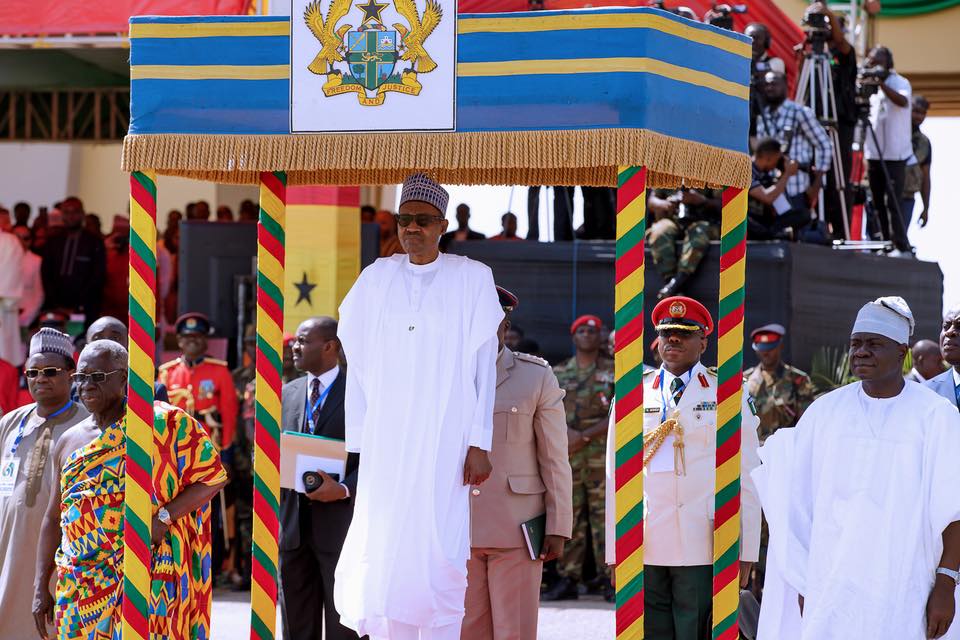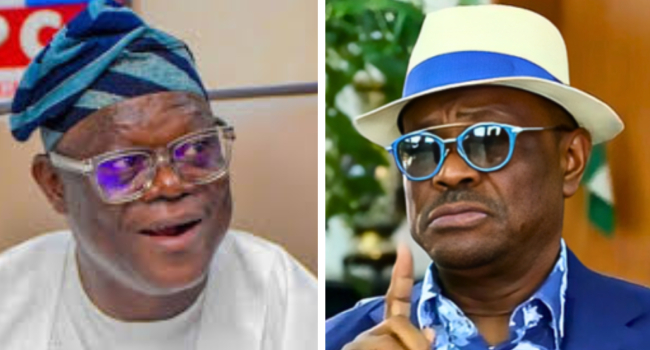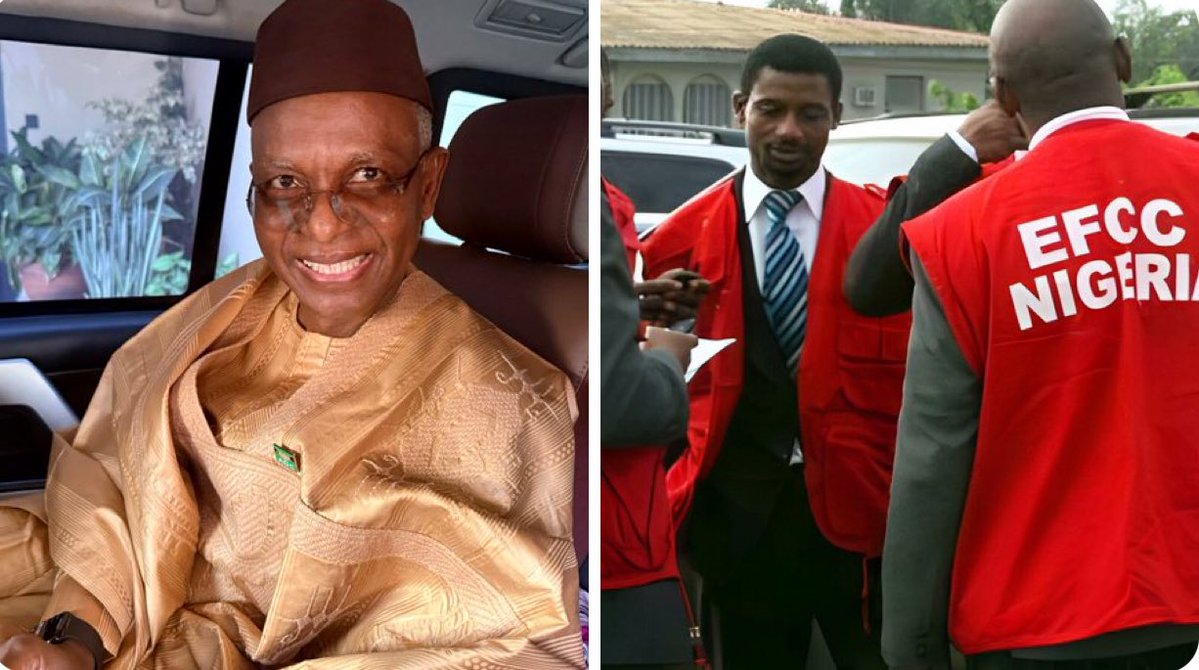Fellow Nigerians, how are you today and how is our dear beloved country? I’ve spent most of this week in Accra, Ghana. Many Nigerian leaders have also passed through the Republic of Ghana this week. The reason is not far-fetched. Ghana celebrated her 61st Independence anniversary on March 6, 2018, and the country has been in celebratory mood all week and Ghanaians have been upbeat all the way. This state of jollification is well-deserved. Ghana has not done badly at all even if it had suffered her own challenges like most African nations in the past. As with all those who wish others well, Nigerian Leaders, including, President Muhammadu Buhari and Senate President, Dr Bukola Saraki came to salute the Ghanaians for the tremendous progress they have achieved since independence.
It would be an understatement to say how much I love and appreciate the giant strides of Ghanaians. Ghanaian politics is not different from religion. Majority of Ghanaians are born with political parties. They are brought up on certain ideologies and principles. As with their religious beliefs, which they hold firmly to, and hardly waver from by criss-crossing religions, it is more difficult for a Ghanaian politician to abscond from one party in order to join another. This notwithstanding, democracy thrives because Ghanaians have learnt and perfected the art of bringing their political leaders to account. Therefore, whilst they may be affiliated to a political party from birth or infancy, they are politically astute enough to vote for another party if and when their own party is seen to be failing to deliver the goods. Hence, electoral results and fortunes of the different parties are often quite close. Ghana is thus more politically advanced than most other African nations. I’m always fascinated by the level of political awareness even amongst those in the rural areas. The mass proliferation of radio stations has also helped in the dissemination of news to every nook and cranny.
I have followed Ghanaian politics since my secondary school days and I’ve been a passionate disciple of Kwame Nkrumah whose revolutionary zeal and passion fascinated me from the outset, and, later, President Jerry John Rawlings who caught the attention and imagination of the world by his summary execution of former Ghanaian Presidents and Heads of State, on the basis of their perceived corruption, at the time. Nkrumah was like our own Dr Nnamdi Azikiwe or Chief Obafemi Awolowo, not just because of his dogged fight for Ghanaian independence but also, because of his great intellectual prowess. I read his powerful books and fell in love with ‘Consciencism’ and ‘Africa Must Unite’. In Rawlings, I found a revolutionary soldier, turned politician, who had an idea of what he wanted to do, what he needed to do and how he needed to it. His main goal was to rid Ghana of the cankerworm of corruption and corrupt influences even if violent and tragic means were required to achieve this. He made mistakes, as he acknowledged to Ovation International magazine, in several interviews, but still did his best to turn Ghana around in a most dramatic but efficacious fashion. It is to his credit that those who like him ,and those who do not, jointly rise to applaud his role in the development of a modern, accountable Ghana.
This year’s Independence celebration in Ghana was very exciting and colourful. It was also special and unusual because two prominent Nigerians were invited, and they both attended. First, our President, Muhammadu Buhari, was the special guest of honour. Second, the President of the Nigerian Senate, Dr Abubakar Bukola Saraki was also invited as a special guest of the Ghanaian Parliament. This meant we had both the number one and number three citizens of Nigeria in attendance at the ceremonies. Nigeria being an acclaimed giant of Africa, the presence of these two lofty personages added grandeur and significance to the ceremonies, to say the least.
I paid special attention to the speeches, especially that of President Buhari of Nigeria and President Nana Akufo-Addo of Ghana. One is taciturn and ponderous in his delivery whilst the other is undoubtedly an orator. The Ghanaian President, dealt with and, rolled out his developmental plans and vision for Ghana and President Buhari also dealt with and, rolled out his achievements with respect to his pet project, the war against corruption. Indeed, he made headlines with his offer and promise to help Ghana fight corruption. Many of his listeners wondered how Nigeria can help Ghana in the fight against corruption when Nigeria was already rated as one of the world’s most corrupt nations and Ghana was way behind. For me, I was happy that President Buhari accepted Ghana’s invitation and witnessed a superb ceremony by a country that has done fantastically well against all odds.
On a serious note, it is my belief that, Ghana is now far superior to many African countries in many areas. In the area of security of lives and properties, Nigeria has become over-militarised with more and more reliance on the Armed Forces rather than the Police, but in contrast, Ghana relies more heavily on its police. We have succeeded in turning our police into an inferior force of unmotivated, inefficient and corrupt officers, and our soldiers now appear more in public as if we are in a military era or worse still, state of war.
Our police have, as a result become ill-equipped to deal with the security challenges that face our nation. They are unable to fight the rising menace of armed robbery and kidnappings by a rag-tag, motley crew of undesirable elements, such that, it is painfully obvious that, they cannot fight the dastardlier, highly organised, but cowardly insurgency of the Niger Delta or Boko Haram not to mention control those agitating for secession in the East, all of which are ravaging Nigeria and threatening our corporate existence. I was enthralled and encouraged when the Ghanaian President declared, emphatically, that he would enlarge the size of the Ghanaian police and give them sufficient training and equipment to enable them fulfil their role as the guardian and protector of a civilian populace in peace time. He asserted that the military would only be used in exceptional cases as back up, since indeed that is their role when there is no war.
I have said it repeatedly that we must return power, purpose and significance to the Nigeria Police. The only way to do this is to follow the vision of President Akufo-Addo and recognise that the time has come to deal with all the issues which plague the police and make them the sorry and sometimes laughable outfit that they have become. A situation where the police have been turned into little more than escorts and security guards for the rich and famous cannot augur well for the internal security of the nation. I do not object to the police carrying out this role, in part, given the security challenges that our nation faces. However, there is no reason why they cannot and must not fulfil their constitutional role of maintaining and securing public safety and public order, even as they protect the upper echelons of society.
The Armed Forces should be restricted to its constitutional role of defending the country from external aggression, maintaining and securing the integrity of our borders and quelling insurrection. They should only be called upon by the President to aid and assist the civil authorities, like the Nigeria Police when there is a real need to do so. Even in such circumstances, the President is required to act only upon conditions laid down by an Act of the National Assembly. It seems clear to me in my layman’s understanding of the law and the relevant constitutional provision of s. 217 of the 1999 Constitution that in the absence of such an Act of the National Assembly, the constant and regular resort to the Armed Forces to deal with simple matters of public order and security is not only wrong but unconstitutional.
To enable the Police to fulfil their constitutional role, our governments now need to concentrate on making bigger budgetary provision not only for equipment but also the number of personnel. Their personal welfare must also be improved. For people who constantly and continually lay their lives on the line, improving their welfare should be a no-brainer. Their salaries should be paid as at when due and must be increased. It is common knowledge that the Police earn a pittance, hence their eagerness to work as security detail and escorts because they know that they will not just be paid on time, but they will earn a package much more considerable than that offered by Government. If we complain about the brazen corruption of police officers and their reluctance to perform their duties, we should appreciate that their emoluments make their position a bit understandable, even though a corrupt police officer cannot be justified and must never be condoned.
There should be a comprehensive insurance, medical and pension package for all Police officers, which will see them adequately taken care of, not just when they are in service but even afterwards, upon retirement. In case of their untimely demise in the call of duty, proper provision should be made for their families. I have no doubt that the level of performance of our officers would increase tremendously if their welfare was improved and they knew that the Government really cared for them.
Having dealt with their personal welfare, the Government must further make provision for a strong and well-equipped police force. A situation where police officers have to pay for their own uniforms must be anathema to us. It is an absolute disgrace to see police officers wearing bathroom slippers because, the individual officer, or the Police force, cannot afford to kit them out with shoes, not to talk of boots. How can any sane person chase a criminal in such circumstances? To imagine this scenario is comical and farcical, to say the least. Yet this is the state of our police today.
For me and my house however, the major area that Government also needs to concentrate upon is equipping the Police Force. There is no reason why the Police should not be as well, and heavily equipped as the Armed Forces. Even though they are a peace time force, it is apparent that the criminals that they sometimes contend with have not just superior fire power, but also superior intelligence gathering techniques. This puts them several steps ahead of the police and sometimes leads us to deride the efficacy of the police when they are not to blame. I see no reason why the Military police should not have armoured combat vehicles like the Army. The air wing of the Police should have sophisticated aircraft including surveillance and assault helicopters. A sea arm of the police should have heavily armed patrol boats that can navigate and take control of our creeks and riverine areas.
It seems apparent, that part of the unwillingness of our present leaders to deal with the situation and have an effective, well-equipped, militarised and properly motivated police force is the military background of those leaders. Esprit de corps properly mandates them to ensure that the Nigeria Police is not as strong as the armed Forces, because such a situation would mean that the Armed Forces could be permanently checkmated as a possible alternate force for governance in the country. Our history demonstrates, that army generals would always want to keep this trump card. To protect our nascent democracy, especially at this time, when some of our leaders are making dangerous references to the possibility of a military takeover, it is imperative to have a strong viable police that can curb the excesses of the military since that is part of its duty of maintaining and securing public order.
As President Nana Akufo-Addo demonstrated with his vision and plans for the Ghanaian Police, the problem is not with our police force, but with the will of our leaders to empower the police force to take its proper constitutional position as the protector of our security and public order. This can only be done by giving and afforded the Police the necessary resources to carry out their duties. It is not too late to carry out the essential reforms of the Nigeria Police.
May God protect and secure us all!

 News5 days ago
News5 days ago
 Headline5 days ago
Headline5 days ago
 Featured5 days ago
Featured5 days ago
 Featured4 days ago
Featured4 days ago
 National5 days ago
National5 days ago
 Featured3 days ago
Featured3 days ago
 Featured3 days ago
Featured3 days ago
 News4 days ago
News4 days ago












